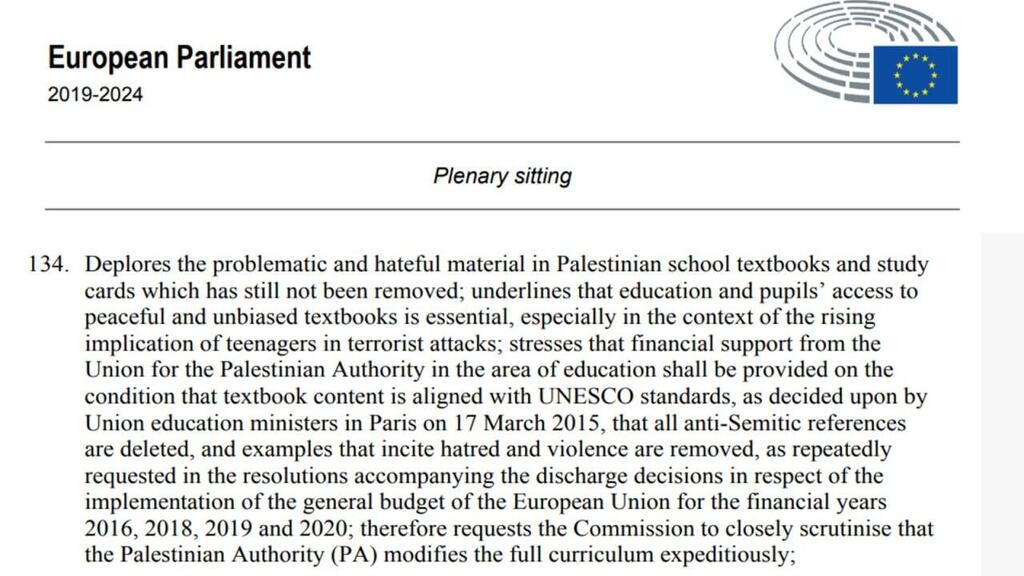Getting your Trinity Audio player ready...
If it weren't for Saturday night's back out, the Israeli government could have approved a bill imposing a 65% tax rate on foreign government contributions which would have potentially caused more harm than good.
Read more:
Even before the proposal could reach first reading, there was a wave of condemnations from Arab countries, and rightfully so, although you can't deny there is something fishy here.
Foreign actors are meddling in Israeli politics. So-called "human rights organizations" play an active part in the demonization and BDS (Boycott, Divest and Sanction) campaign aiming to delegitimize Israel's existence.
Right-wing organizations also receive donations, but not from foreign governments. What country in its right mind would donate to Jewish settlers in the heart of Hebron?
Instead of taking a contentious step such as taxing donations, Israel should act according to the norms set by other democracies. Most countries in Europe and the European Union have decided to adopt the IHRA working definition of antisemitism, which among other things, states that denying Jews the right to self-determination is antisemitic.
Last Friday, U.S. President Joe Biden unveiled a national action plan to combat antisemitism, which also adopts the definition. Contrary to claims from critics of the definition, mainly on the far left, it does not ban criticism of Israel, rather it bans opposition to its very existence.
And why is this so important in our regard? Because all the Israeli Knesset has to do is simply implement the IHRA definition in Israel and apply it to organizations that receive funding or provide funding, whether governmental or private.
Furthermore, in 2019, the EU approved a clause intended to prevent the diversion of aid funds to third parties, indirectly referring to terrorist organizations. The Palestinians, on their part, have launched a massive campaign against the proposed restrictions.
Two weeks ago, the European Parliament decided to withdraw funding to the Palestinian Authority until it removes antisemitic incitement from school textbooks. But alas, EU foreign policy chief Josep Borrell took to Twitter to announce that funding would not be suspended pending the removal of the hateful content.
The U.S. has also announced conditions for providing aid. The main aid agency is USAID. Following the transfer of funds to Palestinian entities that deny Israel's right to exist and/or directly or indirectly support terrorism, the U.S. demanded in 2004 that beneficiaries refrain from promoting or engaging in violence, terrorism, extremist activity, or activities aimed at the destruction of any country.
And just like Hamas, which declined any offer to lift the blockade over the Gaza Strip, Palestinian NGOs also decided that in the dilemma between receiving American aid or supporting terrorism and striving for Israel's annihilation, they still prefer the latter.
Even worse, the EU and European countries contribute to the umbrella organization NGO Development Center (NDC), whose code of conduct includes a commitment to refrain from "any normalization activities with the occupier, neither at the political-security nor the cultural or developmental levels," as well as a commitment to support "the return of the refugees to their original homes".
Another NDC document conditions financial aid on support of BDS. The NDC also funds organizations in Israel, such as Breaking the Silence, B'Tselem, and others, which clearly serve its interests. The funding is all but intended to make Israeli society more ethical.
Is it reasonable for an organization that denies Israel's existence to be allowed to transfer funds to organizations in Israel? Should a sane state be expected to approve such funding? After all, we are dealing with a source of funding that certainly falls under the definition of antisemitism.
The European Parliament has adopted decisions aimed at preventing such funding, and it is disgraceful that the Civil Service Commission and other governmental bodies keep allowing it.
So what can be done? Instead of a controversial taxation law that rightly generates criticism, there is a need for a law that prohibits funding by organizations within the ambit of the working definition of antisemitism and those working against Israel's right to exist.
In Israel, there are organizations like NGO Monitor, which monitors problematic NGOs and their funding, and IMPACT-SE, which focuses on incitement in textbooks. These groups carry out extensive research, and present their findings to parliamentarians in Europe. They have had successes.
Want to write up a bill? Please, do so. Adopt the principles already formulated by the U.S. and Europe; consult experts from research organizations; confer representatives from the opposition as well. Yair Lapid, for example, has expressed opposition in the past to funding by organizations that support BDS. Instead of a lousy bill, it will be possible to develop a much more effective law that could also gain the support of some opposition parties.





